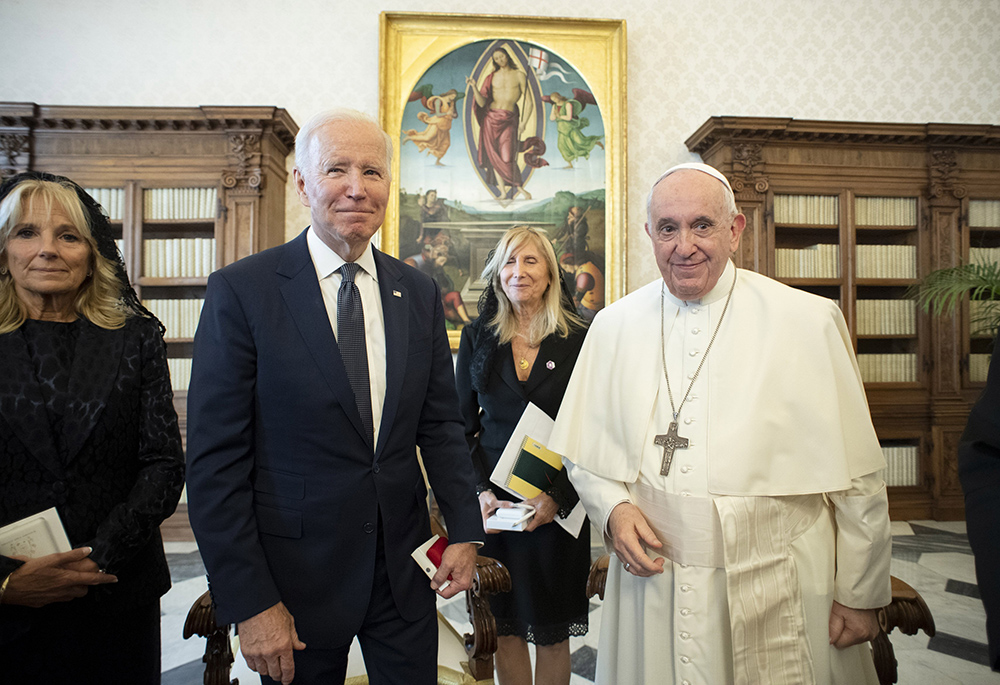President Joe Biden of the United States hailed Pope Francis as “the most significant warrior for peace I’ve ever met” when they met at the Vatican in October 2021. When the two world leaders get ready to meet again on June 14, nearly three years later, peace will probably be the primary topic of conversation. The two men have very different ideas about what peace takes right now.
U.S. Bishops Fighting To Deny Communion
The backdrop of a new kind of dispute, in which some U.S. bishops were fighting to deny Communion to the country’s second Catholic president because of his support for abortion rights, was present for the first widely awaited meeting between the two leaders of the state.
Pope Francis appeared to want to make it plain where he stood on that controversy, having told reporters prior to the meeting that he had never refused anyone the sacrament and that the Eucharist should not be politicized.
After all, Biden told reporters that the pope had called him a “good Catholic” and that the president, who regularly attends Mass, ought to keep receiving Communion. This was true during their private encounter.
However, the two ongoing battles in Gaza and Ukraine will dominate most of their conversation as they get together for their second face-to-face of Biden’s presidency, this time in southern Italy on the fringes of the G7 Summit, where the pope will give a lecture on artificial intelligence.
Pope Calls For A Cease-Fire In Gaza
There will be a pope on one side who, depending on whose accounts one believes, has called for a cease-fire in Gaza on multiple occasions since Hamas attacked Israel on October 7 of last year. He may or may not have also referred to the Gaza siege as a “genocide.” The president of the United States who will be opposing him is one whose government has never wavered in its unwavering support of Israel, as evidenced by the recent sale of over $1 billion in weapons, and who has objected to the idea that Israeli military actions against the Palestinian people could be equated with genocide.
The pope was the one who contacted Biden shortly after the war started, hoping to assist in “identifying paths to peace” and bring about a cooling of tensions in the Middle East. When they speak again eight months later, it’s unlikely that the two sides would rehash their differing perspectives on what happened the previous year. Instead, they should work to create momentum for new avenues of peace, which may include the recently developed cease-fire agreement sponsored by the United States.
There is even more separation between the two leaders when it comes to Ukraine, where strengthening support for the suffering nation in its third year of Russian siege is a high priority for the G7 agenda.
Follow Us:
Youtube | Google News |
Igniteds is on YouTube; click here to subscribe for the latest videos and updates.


























